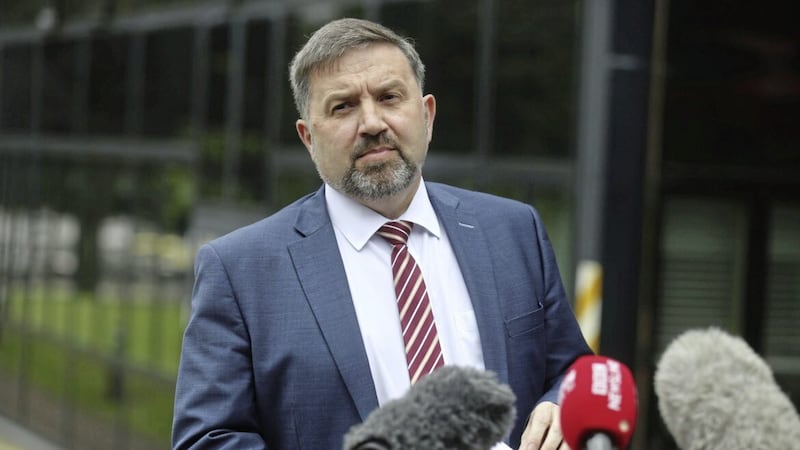Let nobody say there is some uniquely rustic aspect to the row over Enniskillen’s South West Acute Hospital. In suburban North Down, the argument over health reform is in many ways even worse.
Enniskillen is having reform haphazardly forced upon it. Recruitment problems have caused the transfer of emergency general surgery to Altnagelvin, 50 miles away. But that is still ultimately in line with the Bengoa report, adopted by all five executive parties in 2016. When those parties join protests in Fermanagh they are complaining about their own policy, plus their failure to implement it in a non-haphazard fashion.
By contrast, health reform in North Down is proceeding exactly to plan. Two nurse-led minor injuries units in Bangor and Newtownards are to close and be replaced with a consultant-led urgent care centre – a sort of super minor injuries unit – beside the A&E at the Ulster Hospital in Dundonald.
It might seem odd or even suspicious to have two ‘accident departments’ on one site. Putting small clinics in towns without a hospital looks like common sense. Research shows minor injuries units are used appropriately by the public. People know not to turn up to them with major injuries, which should be taken to A&E, or minor illnesses, which should be seen by a GP.
But research also shows these units are not efficient or sustainable on their own. Relocating them to hospitals enables overnight and weekend opening, access to essential resources such as diagnostics and imaging, and instant referral to A&E if required.
More importantly for health reform, it enables a new approach to accessing care, where admission to A&E is only by referral – from an ambulance, GP or urgent care centre. Such centres become the key to triaging patients into the system.
This is meant to be the new model for the whole of Northern Ireland. It was set out in detail by an expert report for the Department of Health in 2020 – known as the Maxwell report – and endorsed as policy last year by UUP health minister Robin Swann, who called it a “milestone” and said he “firmly believed in implementation” of its proposals.
Yet a UUP representative joined a protest in Newtownards this Monday against the proposals. So did DUP representatives, despite their party supporting the same reforms. Perhaps most tellingly, so did an SDLP representative.
In 2020, Colum Eastwood pledged no representative of his party would object to loss of health services in their constituency, provided the change was an expert recommendation. This has been ignored in Newry and Downpatrick but at least they are SDLP heartlands, where change is being forced by problems similar to those in Enniskillen. Why undermine the party, its leadership and its health policy to try squeezing a drop from the parish pump in North Down, where the SDLP has less than 3 per cent of the vote?
Sinn Féin has no representatives in North Down, otherwise it would presumably have been at Monday’s protest. It has certainly waved enough placards in Enniskillen.
The Maxwell report is not beyond criticism. Travel to urgent care centres is an issue, even in an area as compact and well-served by public transport as North Down. But parties there are not just raising legitimate practical concerns that can be addressed through improving the policy. They are protesting against the fundamentals of their own policy, plus Stormont’s success in implementing it.
Alliance has previously been as bad. In 2019, it joined the other four main parties at a protest in Craigavon against centralising breast cancer services in accordance with Bengoa.
Alliance has not joined protests in Enniskillen, although that could have been explained by its lack of presence in the district – it has only one councillor, in Omagh.
However, the party has come out fighting for reform in North Down, defending and explaining the urgent care centre plan and criticising the UUP, DUP and SDLP protestors. Paula Bradshaw, Alliance’s health spokesperson, had a combative letter about it in Tuesday’s Irish News.
North Down is both a heartland and a battleground constituency for Alliance. Taking a stand there is a pointed act and will provide a fascinating experiment in political responsibility.
If Alliance is rewarded for this at the ballot box, or at least not punished, it will show that cowardice and opportunism on health reform are not inevitable.
If it is punished, public healthcare in Northern Ireland is doomed, and the electorate will have to bear its share of the blame.








